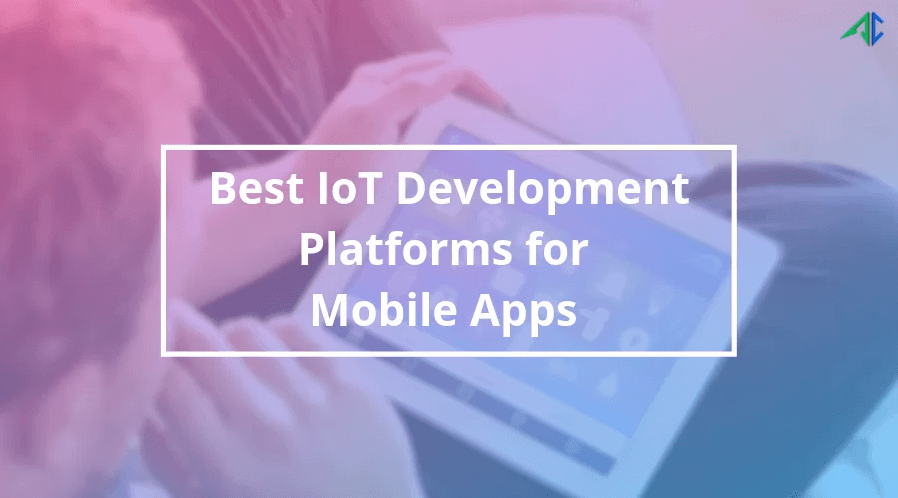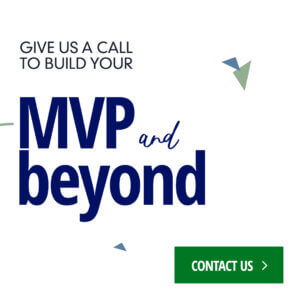Table of Contents
IoT of late contributes larger to make business smart by bringing down the operational cost and maximizing production. Let’s explore some popular IoT development platforms to make an effective mobile app for your business.
The adoption of emerging technologies among businesses is in trend today and is considered a decisive step to stay ahead of the competition. Several technologies witnessed their acceptance among businesses, IoT (Internet of Things) is one of them.
Benefits such as minimizing operational cost, getting ideas related to consumer behaviors, increasing productivity, improving customer service, etc., are a couple of reasons why businesses prefer to adopt IoT nowadays.
According to stats, the market size of IoT in banking and financial services is projected to reach up to $2.03 billion by 2023. Now, you can imagine the growth of the said technology in other industries.
With the fast-paced adoption of internet of things among businesses, the market is swamped with a plethora of IoT development platforms for mobile apps. We will discuss some popular platforms in this blog.
You can choose the right IoT development platform matching your business needs to develop your IoT app. Consulting with a mobile app development company will help you a lot in making the selection of the right platform.
What is IoT App Development?
IoT is a smart connectivity of multiple sensor-based devices to get meaningful information. IoT app development is an effort for building a software application that connects multiple physical devices capable of communicating data through the internet, Bluetooth, or ethernet. The application enables m2m communication based on algorithms and processed into decision-making insights, marketing automation, and a lot more.
What are the Best IoT Development Platforms?
Google Cloud IoT
It’s good to start with the Google Cloud IoT platform while talking about the best IoT development platforms for mobile applications. As a much-talked IoT platform, Google Cloud IoT includes a highly secure multi-layered infrastructure.Why Google Cloud IoT?
- Google Cloud IoT comes with ML capability and is perfect for any IoT based requirements
- It is compatible with a range of embedded operating systems
- It has a real-time location intelligence capability and delivers insights for your business from those of dispersed devices worldwide
- It increases the operational efficiency of your business, gives prediction related to equipment, and lots more
Microsoft Azure IoT Suite
Azure IoT Suite is meant to cater to multiple needs of a business, including asset management, remote monitoring, predictive maintenance, etc. It is a complete pack of services like ML, stream analysis, IoT hub, power BI, etc.
Be it remote monitoring, smart space, predictive maintenance or the related things, Azure IoT is a one-stop solution for everything.
Why Azure IoT Suite?
- With Azure IoT Suite, developers can leverage an open platform to build a powerful mobile app
- It is perfect for both amateur and expert developers
IBM Watson
IBM Watson brings the possibility for developers to secure all the connected devices, without spending a lot of time. With AI-powered IBM’s IoT development platform, developers enjoy the liberty to get quick access to connectivity, real-time data analysis, information management, and whatnot.
Why IBM Watson?
- IBM Watson provides robust security
- It lets you track real-time data
- Great analytic services
- Artificial Intelligence and data analytics
Oracle IoT
Oracle IoT is a reliable platform that allows you to connect devices to the cloud, gather data from the connected devices, perform data analysis in real-time, and a lot more. The platform also makes possible data integration with web services or enterprise apps with a simpler deployment process.
Why Oracle IoT?
- Oracle IoT includes features such as data enrichment, stream processing, etc.
- It includes features such as endpoint management, device visualization, quick messaging, etc.
- With Oracle IoT, you can easily extend customer experience, supply chain, HR, ERP, etc.
- The platform enables developers to leverage REST API to perform integration with Oracle and non-Oracle software and many IoT devices
Also read: 7 Practices to Follow While Creating Apps with IoT in Agriculture
AWS IoT
As a low-cost infrastructure and reliable IoT platform, Amazon Web Services (AWS) doesn’t need any specific introduction. The IoT platform is known for its higher scalability, cost-effectiveness, flexibility, etc. AWS IoT enables devices to connect with the cloud and interact with each other. It comes with support for MQTT, HTTP, Lightweight communication protocol, etc.
Why AWS IoT?
- It can process a large amount of data
- With this platform, access your devices securely from anywhere
- It enables developers to integrate other AWS services that include Amazon Kinesis, AWS Lambda, Amazon Quicksight, etc.
- AWS IoT makes it possible for your application to process data even when not connected
Android Things
Google announced it on May 7, 2018, Android Things was described as a lightweight operating system for IoT. With this platform, developers got the liberty to build apps by leveraging the existing APIs, Android development tools, libraries for display controllers, temperature sensors, and lots of other components. But Google has taken the step to restrict the platform for smart speakers and displays only.
Why Android Things?
- It includes the necessary hardware and software frameworks to develop IoT products
- Built-in privacy
- Quick security updates
Kaa
As the best open-source IoT platform, Kaa is perfect for everyone looking for quick IoT app development and deployment. Kaa is packed-in with a feature-rich IoT development kit, which makes the platform a good option for customization for different business application requirements.
Why Kaa?
- Performance management
- Data management
- Configuration management
- Device management
- Connectivity management
- Big data analytics and more
Conclusion:
Which IoT platform is best? Well, going through the synopsis of the above IoT application development platforms, we expect you to have a good understanding of all the IoT platforms that offer great capabilities.
They all are equally popular among developers and leveraged by them. You can choose the right platform based on your specific needs related to app development, business requirements, etc.
We would love to hear your comments relating to the post. Got some other thoughts? Drop us words through our contact page.







